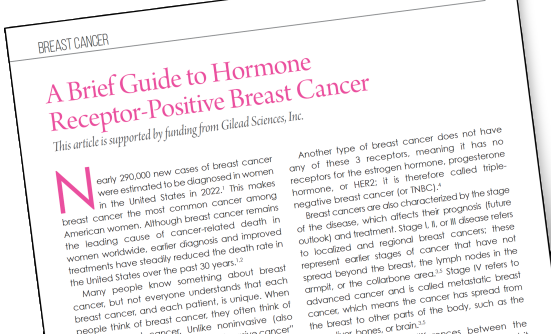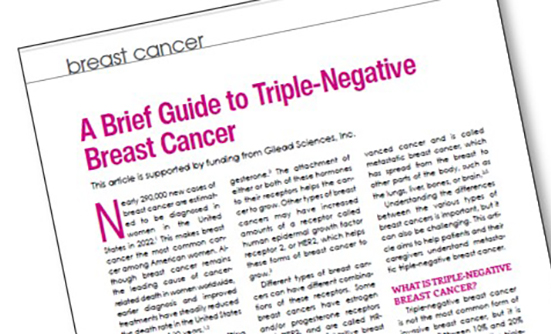
The patient may have been told that the cancer is now in her bones or lungs, even liver and brain. For women with stage IV breast cancer, it is critical to understand exactly what that means. It does not mean that she has bone cancer, lung cancer, liver cancer, or brain cancer. What has happened is that the breast cancer cells have traveled from the breast where they originally began, and using either the lymphatic system (lymph nodes) or vascular system (blood stream) managed to leave the breast and make their way to other vital organs in her body. This same process also takes place with other types of cancers that start in one organ and later travel elsewhere in the body.
However, reading a pathology report from a surgical procedure that says there is cancer in the lymph nodes does not mean that the patient has metastatic cancer. This, too, is no doubt confusing. It isn’t until it travels elsewhere to an organ that cancer is deemed to be metastatic disease.
Why is it important for the patient and her family members to know and understand all of this information? Because having been diagnosed with stage IV breast cancer means that this now becomes part of the patient’s family pedigree of identified cancers. Let’s say her daughter is seeing her primary care doctor and tells him that her mother has been diagnosed with lung cancer or with bone cancer when in fact it is metastatic breast cancer. That doctor will record this information, although incorrect, in her medical record. He will then be watching her more closely for perhaps developing lung cancer in the future, when the concern should actually be about breast cancer. So accuracy for medical history is very important.
There is also confusion about when the cancer cells got into these other organs. The confusion rests with oncology specialists, who will say “Your cancer has recurred,” or they might say, “Your cancer is back.” The fact is, however, that the cancer was there all along. It was there when you were originally diagnosed with breast cancer, but it was way too small to see on any scans or cause any physical symptoms. This is why patients receive adjuvant therapy, which is chemotherapy or hormonal therapy, to prevent any cancer cells that might have traveled from the breast into other organs from being able to get themselves established and start growing and multiplying. However, this treatment, also known as systemic treatment because it travels throughout the body with the intent to kill any rogue cancer cells floating around, doesn’t always work. And there are situations in which it is felt not to be needed if the risk of cancer cells having gone elsewhere is low enough.
What wakes up these breast cancer cells and allows them to start growing in other organs? This is what research has been working on for years, and it will take some additional time before it is truly understood. Researchers have gained a lot of knowledge in just the past 2 to 3 years, which is promising, but how to kill these cells before they multiply and grow into tumors elsewhere remains a challenge.
If you have been told you have metastatic breast cancer, make sure you understand what that means. Where did the cancer travel? What are its prognostic factors (estrogen receptor, progesterone receptor, HER2)? Also, it’s fair to ask what may lie ahead for you. The mission of treatment is not to cure you but instead to get the cancer under control so you can live in harmony with it for as long as possible. Quality of life needs to be preserved as well so that you are truly living versus just existing. The prognostic factors referenced above greatly influence what treatment options you have and how long someone usually does live in harmony with the disease.
So, if you are the person with stage IV breast cancer, make sure your family members understand what this means and don’t get it confused with being bone cancer, or lung cancer, or some other form of cancer. And make it your mission to live each day to the fullest. There is a great quote attributed to Eleanor Roosevelt: “Yesterday is history, tomorrow is a mystery, and today is a gift; that’s why it is called the present.”












